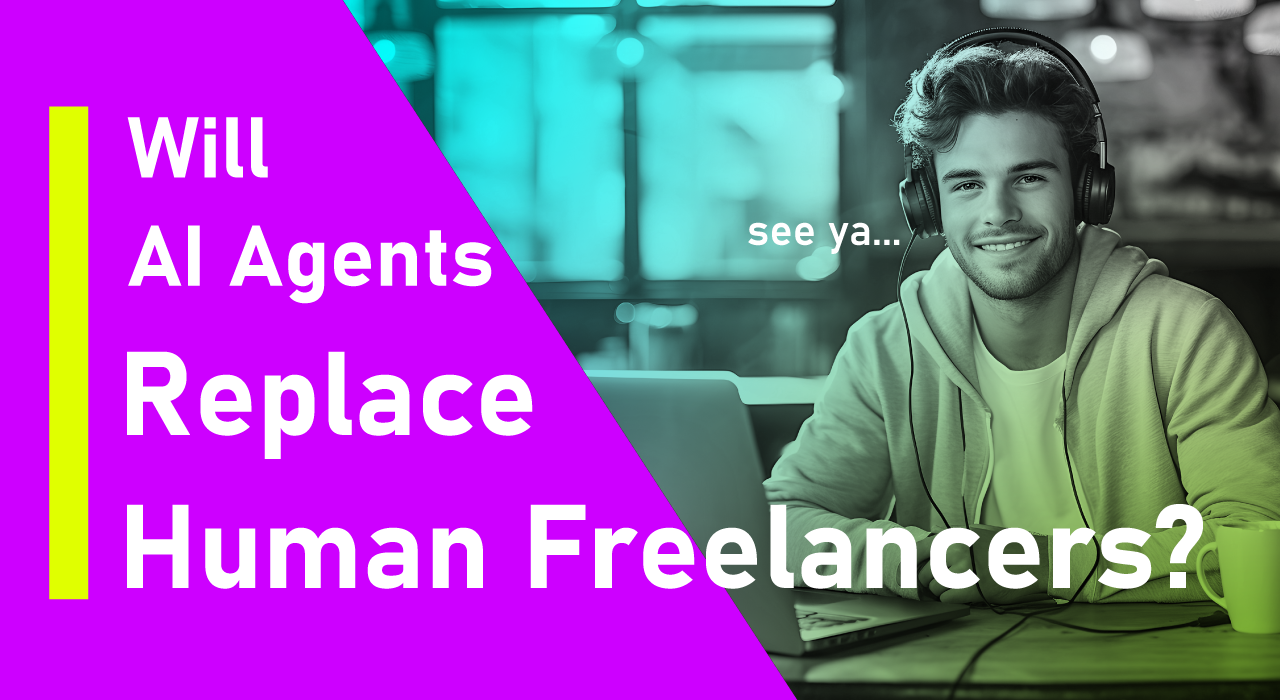
We’re entering an inflection point in the world of work. In 2025, the rise of AI agents—autonomous digital systems capable of executing complex, multi-step tasks—is not just a technological leap, but a structural shift in how businesses operate, scale, and hire.
More than just tools, these agents are beginning to compete with human freelancers. But what does this mean for the future of remote work, digital labor, and the freelance economy?
This article explores how AI agents are transforming industries, reshaping workflows, and challenging the role of human freelancers in a world increasingly run by automation.
AI agents are no longer passive assistants. They are autonomous collaborators—designing, writing, coding, and managing projects with little to no human input. Platforms like Retool Agents, GPT-4 Agents, and OpenDevin aren’t just supporting business operations—they’re replacing full-time roles traditionally filled by freelancers or junior contractors.
This shift is triggering three key changes:
In domains like content generation, coding, and customer support, AI agents are rapidly closing the quality
This is especially disruptive for junior-level freelancers, whose competitive edge lies in affordability and availability—two domains where AI agents now lead.

Grammarly is an AI-powered writing assistant that helps improve grammar, spelling, punctuation, and style in text.

Notion is an all-in-one workspace and AI-powered note-taking app that helps users create, manage, and collaborate on various types of content.
New startups in 2025 are being designed around agent-native operations. Instead of hiring a designer, writer, and developer, they spin up a suite of agents—each assigned a functional role and monitored by a single operator or founder.
“In early-stage SaaS, we’re seeing entire go-to-market teams replaced with three agents and a prompt engineer.”
— VC Analyst, AI Scout Ventures
Creative and marketing agencies are under pressure. Clients expect deliverables faster and cheaper. Leading agencies now integrate AI agents into their pipelines—either augmenting freelancers or replacing them entirely for lower-tier tasks like ad copywriting, keyword research, or landing page wireframes.
Those resisting this shift risk being underbid or phased out by leaner, agent-powered competitors.
Large companies are building in-house AI agent networks—custom-trained agents tied into internal tools (Slack, CRMs, product dashboards). These are not experiments; they’re core workforce strategies for automating operations at scale.
The result? Fewer contractor hires. Smaller external teams. Greater internal efficiency.
This doesn't spell extinction for freelancers—it redefines their role.
Freelancers must evolve from task-doers to creative directors, strategists, and agent orchestrators—the humans who prompt, oversee, and enhance the output of autonomous agents.
Rather than being replaced, the most forward-thinking freelancers will become multipliers, using agents to 10x their output while charging for insight, not labor.
The rise of AI agents marks a fundamental change—not just in technology, but in economic models of work. Freelancing in 2030 will look very different from today: more automated, more strategic, and more dependent on how humans collaborate with AI systems.
AI agents are not the end of freelancing, but the end of freelancing as we know it.
Those who adapt, lead, and innovate with agents at their side will thrive. Those who don’t may find themselves outperformed—not by other freelancers, but by fleets of intelligent, tireless digital workers.

